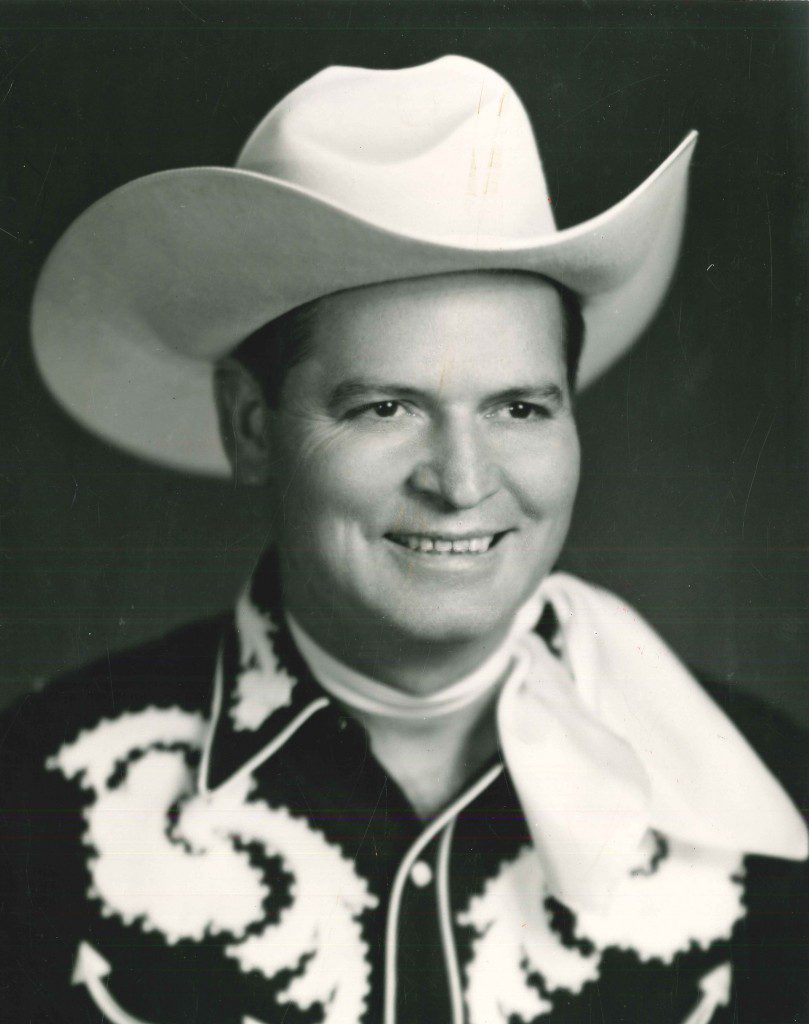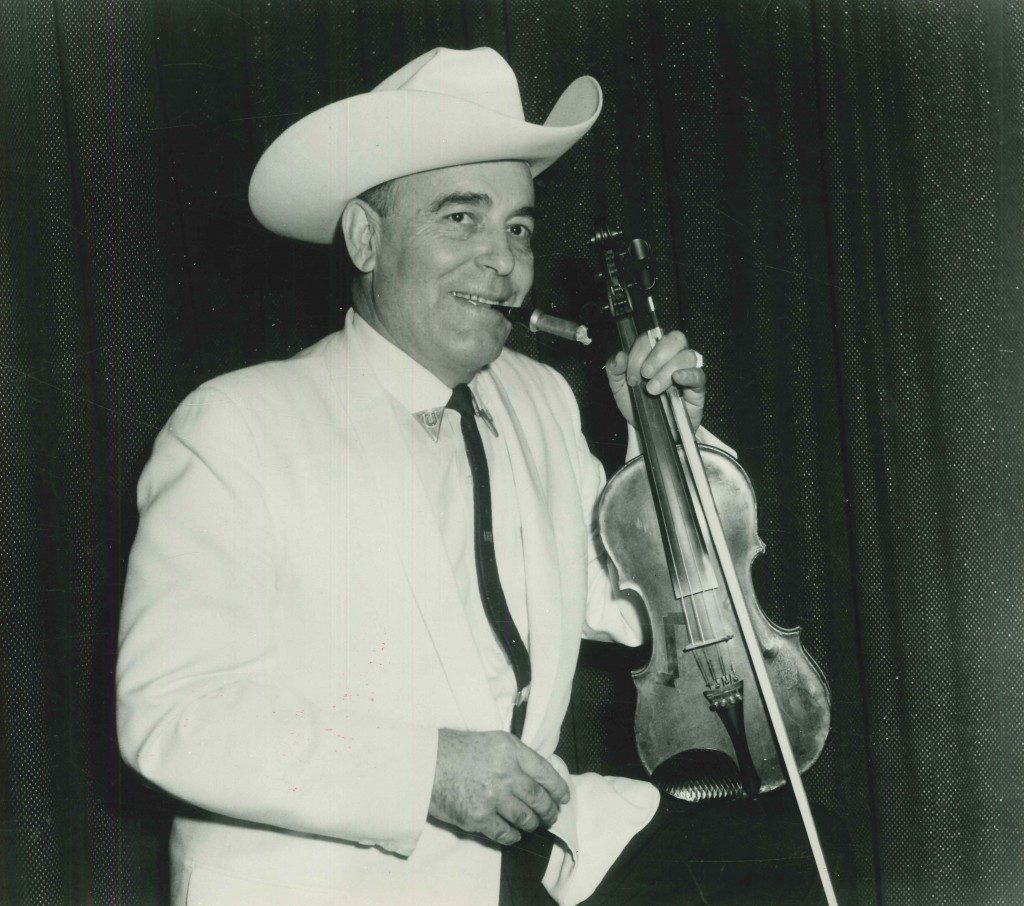
‘Take Me Back to Tulsa’
[pullquote]“You know, if you were from Tulsa in 1940, you didn’t say you were from the Oil Capital of the World, or anything like that. Instead, you said you knew Bob Wills, or you danced to Bob Wills at the Cain’s. That was your claim to fame.” – Larry Shaeffer, former Cain’s Ballroom owner and Tulsa-based music promoter[/pullquote]
It’s been exactly 80 years since Bob Wills and the Texas Playboys rode into Tulsa. In many ways, he never rode out.
Physically, he left town in December 1942, headed for a stint in the U.S. Army, turning the KVOO and Cain’s broadcasts over to his brother Johnnie Lee Wills and selling his share of the ballroom lease to Mayo. It took about six months for him and Uncle Sam to part ways – as his sister Lorene once told me, “Bob and the Army just didn’t get along.”
By that time, Johnnie Lee Wills and His Boys had become established and, instead of returning to Tulsa, Wills chose to let his brother hold things down at Cain’s while he traveled to California and re-established the Texas Playboys.
From then on, the peripatetic Wills made temporary headquarters in a lot of different cities, mostly in California and Texas, but he periodically returned to Tulsa. As Mayo told me, “He was still a part of the family, if you know what I mean.”
Meanwhile, scattered all over the globe by World War II, several of the musicians who’d helped Wills launch his new sound made a postwar return to Tulsa. Notable among these players was steel-guitarist Leon McAuliffe, who’d joined the Texas Playboys at the age of 15. In the late ‘40s, he bought Tulsa’s Akdar Temple building and converted it to a dancehall called the Cimarron Ballroom. For many years following, McAuliffe and His Cimarron Boys, playing at the Cimarron Ballroom, were locked in a rivalry with Johnnie Lee Wills and His Boys at Cain’s. The latter continued at Cain’s and with the broadcasts until 1958 – 16 years after Bob Wills’ departure.
Although western swing fell out of popularity nationally in the 1960s, it was still found in Tulsa, played by veterans of the Wills’ bands. And when the western-swing revival of the mid-‘70s – fueled by traditionalists like Red Steagall along with hippie-boy acts like Asleep at the Wheel and Commander Cody and His Lost Planet Airmen – came along, Cain’s Ballroom was there to welcome them all. Larry Shaeffer, the owner at the time, may have been a rock ‘n’ roller, but he was steeped in western-swing lore.
In the 1990s, Shaeffer began bringing in former Bob and Johnnie Lee Wills sidemen to play dances around Bob Wills’ March 6 birthday. That weekend tradition continues under Cain’s current ownership.
“Because I was always having an old couple show up, coming in and reminiscing, it became obvious that I should try to offer those guys (musicians) a place to reunite,” Shaeffer says.
Another Tulsa western-swing tradition began in the early ‘90s, when I went to radio station KVOO to interview the famed country-music singer and disc jockey Billy Parker for a Tulsa World story. Knowing of my love for western swing, Parker suggested I go on his radio show and play a few swing tunes with him. After about the third one, he asked on air if anyone who’d like to hear us do a weekly western-swing show to phone in; we had something like 80 calls in five minutes.
That’s how Wooley Wednesday began on KVOO, lasting for several years through a couple of ownership changes and who knows how many consultants. After its demise, KWGS general manager Rich Fisher was kind enough to give me, and western swing, a regular Saturday night slot on Public Radio Tulsa, where I’m going into the 11th year with my show, “Swing on This.” (Parker also features western swing, as well as classic country, on his “Country Junction” show from Big Country 99.5.)
Meanwhile, the Tulsa live-swing scene continues to shine, with the crackerjack Tulsa Playboys, regulars at Cain’s, leading a pack that includes the veteran Round Up Boys, the young A Bar Bunkhouse Band and others – all of whom owe their very existence, in one way or another, to that scrappy bunch that settled in Tulsa eight decades ago to create a sound that still reverberates around the world.























